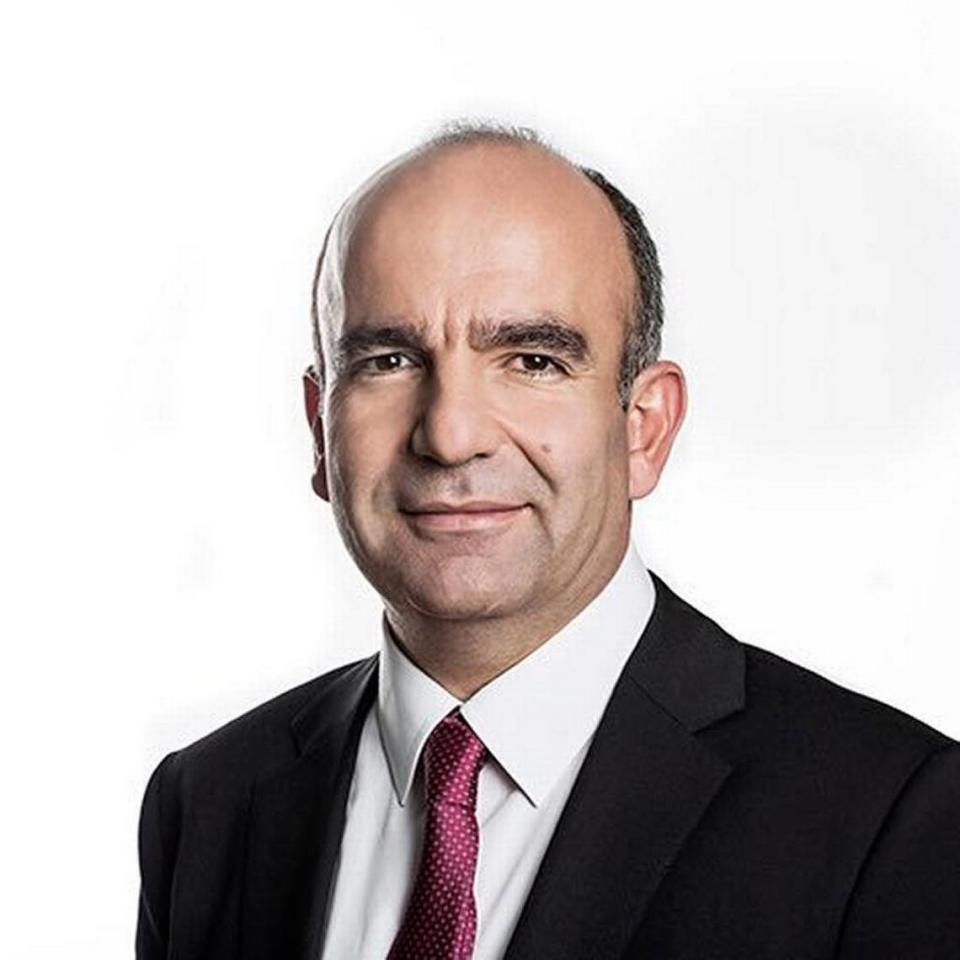The Turkish people must choose wisely. Their embattled democracy is at stake | Opinion
- Oops!Something went wrong.Please try again later.
The people of Turkey will head to polls Sunday to elect a president and members of the parliament. It’s an election deemed a historic turning point, either heading back to democracy or to a full-fledged dictatorship. The political future of the country is at stake.
Incumbent President Recep Tayyip Erdogan has ruled Turkey for more than 20 years, but for the first time, he is not the favorite to win the election despite an unfair playing field.
In 2016, when the Erdogan government took over my daily newspaper, Zaman, with a brutal police raid and I was kicked out as editor in chief, it was impossible for me to imagine anything more cruel to happen in a country that is member of NATO and the European Council. However, now I see that even silencing the largest circulated critical paper has become a modest sin for this populist autocrat.
Unfortunately, Erdogan may disregard both the election results and constitution as he did by running third time. He could even trigger domestic mayhem to stay in power. His minister of interior, Suleyman Soylu, already said that, “May 14 is a political coup attempt by the West. It is a coup attempt to destroy Turkey,” plainly describing the nature of new regime they established on the ashes of Turkish democracy.
Change of leadership is routine in democracies, but any attempt to change an autocracy or dictatorship is considered a coup or treason. The regime’s powerful Goebbelsian propaganda machine has used all means to portray Erdogan as the Islamist leader to represent revival of Ottoman glory and continuation of Sultan Abdulhamid II’s vision — whose rule was interrupted and replaced with a 100-year secularist republican experiment under Ataturk.
Political developments in past decade under my watch as an exiled journalist convinced me that even silencing the largest newspaper critic turned out to be a minor deal under Erdogan’s rule. When the ruling AK Party lost its majority in Parliament in June 2015 elections, Erdogan refused to form a coalition. He called for new elections after a sudden and abrupt wave of terrorist attacks that triggered fear in the public. His party regained the majority in the November elections — after which, strangely, the terror surge stopped.
On July 15, 2016, just five months after taking over my newspaper, a strange and amateurish coup attempt unfolded during prime time, with no political arrests and no media restrictions.
Erdogan named it a “gift from God’” and used it as Turkey’s “Reishtag fire” moment to create one-man rule. He shut down 200 critical media outlets, jailing more than 100 journalists, purging more than 120,000 civil servants, including judges, generals, academics, lawyers, business people and politicians. He changed the political system from parliamentary democracy to a Turkish-style presidential system, eliminating all checks and balances via the judiciary, media or parliament.
The country in which people will cast their ballots is not considered “free” per Freedom House’s 2022 report and ranks 165 out of 180 countries, according to the World Press Freedom Index of Reporters Without Borders. Under Erdogan, Turkey is among the biggest jailers of journalists, together with China, Iran and Myanmar. On May 3, World Press Freedom Day, five more journalists were sent to jail.
My story of convicted journalist Hidayet Karaca underscores the absurdity of the Erdogan regime’s persecution, especially against the press.
Karaca remains in solitary confinement. Authorities did not let him even to attend his dad’s funeral. He was sentenced to 31 years on charges of allegedly slandering an al Qaeda-affiliated radical Islamist group and for membership in the Hizmet Movement, inspired by Fethullah Gulen. Erdogan calls it a terrorist group and blames it for a coup attempt.
In another case, prosecutors charged Karaca for attempting to overthrow the Turkish government, a coup attempt that took place while Karaca was already in jail. Yet, they sentenced him with two life sentences, plus 100 years in prison. Another court sentenced him to 1,406 years without any serious evidence for conspiring in a match-fixing investigation against a leading soccer club. In addition to these sentences, he has been fined more than $2.5 million, his house confiscated and his pension revoked.
Millions in Turkey will head to the polls on Sunday to vote for a president and parliament, But will be a referendum between democracy and autocracy, where a journalist can be sentenced for 1,406 years in prison.
Abdulhamit Bilici was editor in chief of Zaman daily, which was shutdown by Erdogan government in Turkey in 2016.


